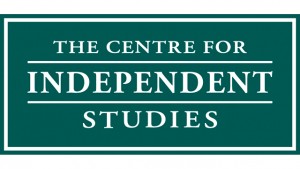Home » Commentary » Media Release » MEDIA RELEASE: Axing negative gearing will hit low earners harder than high earners

 Abolishing negative gearing will be regressive: it will hit low income earners harder than high income earners, according to Centre for Independent Studies (CIS) economist Michael Potter.
Abolishing negative gearing will be regressive: it will hit low income earners harder than high income earners, according to Centre for Independent Studies (CIS) economist Michael Potter.
CIS analysis of the latest taxation statistics shows the average benefit of negative gearing is larger for low income taxpayers, and reduces as income increases, when this benefit is (correctly) measured as a proportion of income,” Mr Potter said.
“Negative gearing abolitionists have been arguing the dollar impact of negative gearing is larger for the rich. However, this is the wrong approach.
“Many tax provisions provide greater dollar benefits to the rich, including the GST exemption for food, basic healthcare and water.
“Yet we hear no one arguing for the removal of these exemptions on that basis. Imposing GST on these items would be regressive, because the percentage impact decreases as income goes up.
“The proportional benefit of negative gearing is substantial at low income levels. This could include non-working spouses holding negatively geared property,” Mr Potter said.
The detailed figures are below.
| Decile | Average taxable income in decile | Average rental loss in decile | |
| $ | As % of average taxable income | ||
| 10% | 3,542 | -741 | -20.9% |
| 20% | 14,405 | -291 | -2.0% |
| 30% | 22,144 | -335 | -1.5% |
| 40% | 30,093 | -454 | -1.5% |
| 50% | 38,263 | -499 | -1.3% |
| 60% | 46,674 | -588 | -1.3% |
| 70% | 57,046 | -754 | -1.3% |
| 80% | 70,658 | -947 | -1.3% |
| 90% | 91,127 | -1,257 | -1.4% |
| 100% | 200,790 | -2,435 | -1.2% |
“This is the right way to look at the distributional impact of tax provisions, not using misleading figures about dollar benefits, and the numbers of nurses or anaesthetists who use negative gearing.
“And as these more relevant figures demonstrate, abolishing negative gearing will disproportionately hurt the poor,” Mr Potter said.
Michael Potter is Research Fellow in the Economics Program at the Centre for Independent Studies
MEDIA RELEASE: Axing negative gearing will hit low earners harder than high earners